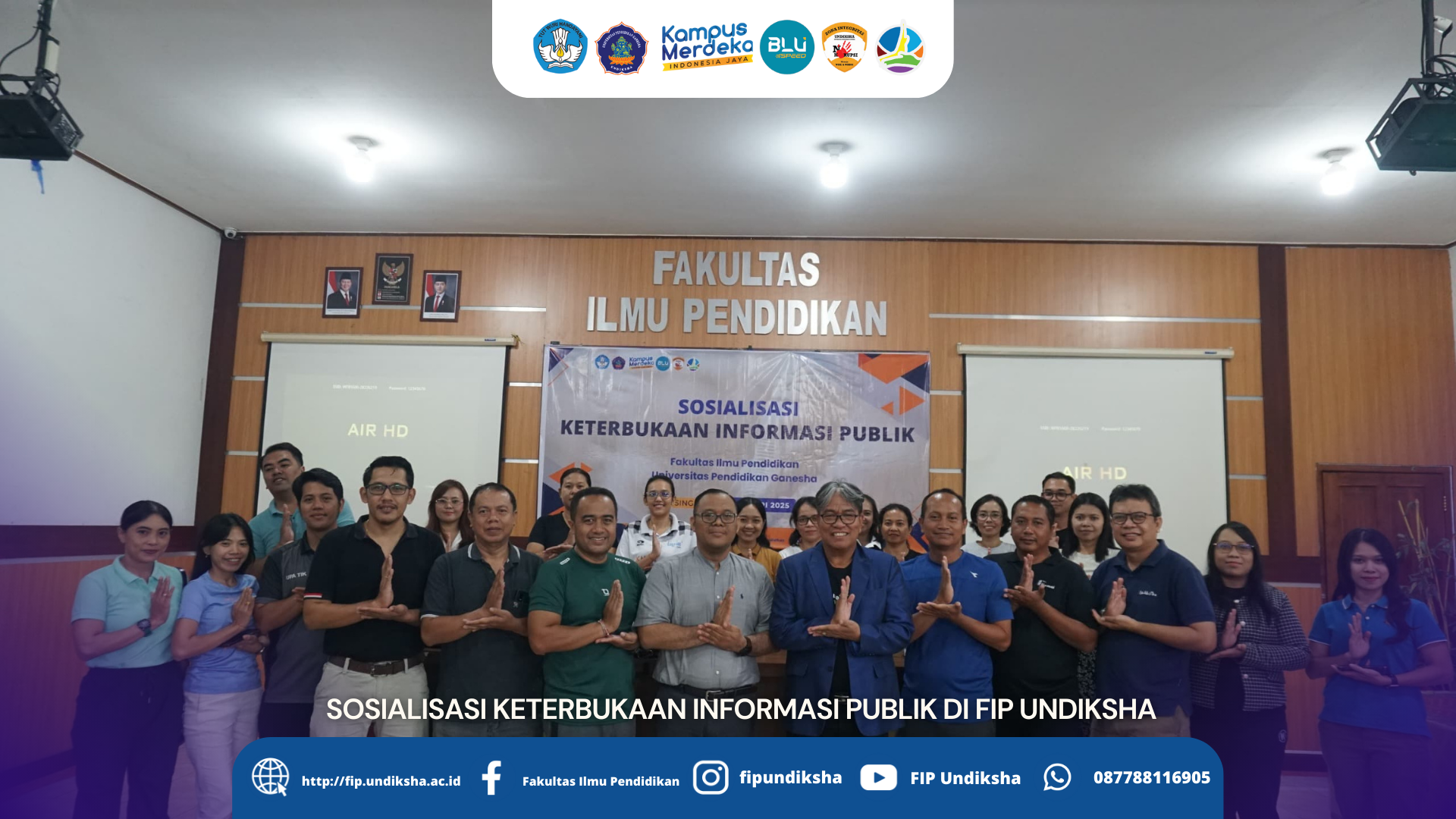Undiksha Faculty of Education (FIP) students are aggressively determined to take part in the national arena with the aim of realizing FIP as a faculty that is a pioneer in various innovations, one of which is through the Student Creativity Program (PKM). After successfully obtaining PKM-PM funding in 2023, the FIP Undiksha student innovation project accompanied by Drs. I Komang Ngurah Wiyasa, S.Pd., M.Kes., entitled “Strengthening the Potential of Blind People in Playing Balinese Gender Musical Instruments with Audiobook Media at the Teratai Foundation” will now enter the Progress Assessment stage of PKM Implementation (PKP2) by the Directorate of Learning and Student Affairs, Ministry of Research, Technology and Higher Education (Ristekdikti).
The team led by Putu Listya Candra Dewi, with members Dewa Ayu Kartika Pratiwi, Ni Putu Martha Pebrianti, and Putu Jessie Ardi Sudira from the Primary School Teacher Education Study Program (PGSD), and Kadek Dwika Darma Widyaputra from the Information Systems (SI) Study Program, has recorded a video of a performance playing Gender Balinese musical instruments presented by blind people at the Teratai Foundation. This performance was held on September 25, 2023, at the Teratai Denpasar Foundation, as an effort to strengthen innovation in the upcoming PKP2 assessment, as stated by the team leader, Putu Listya Candra Dewi. The team hopes that through this activity, the potential and self-confidence of blind people can increase. Apart from that, they hope that this innovation can be recognized and compete at the prestigious National Student Science Week (PIMNAS) event in 2023. The video of the performance was uploaded to the YouTube page of team leader Putu Listya Candra Dewi and can be accessed at the following linkhttps://youtu.be/JJeY2_oFAqY?si=aZDUy57MOSqgCyDA.
The team’s accompanying lecturer, Drs. I Komang Ngurah Wiyasa, S.Pd., M.For., stated that the idea realized in this innovative work is a unique breakthrough. He hopes that this PKM program, which can be considered something that is rarely found, can inspire students to compete in the next PIMNAS and contribute to increasing the KPI and Simkatmawa of the Faculty of Education.
Listya and her colleagues hope that this activity can help demonstrate the existence of a blind person by showing the abilities and potential that exist within him or her. A blind person can also take part in preserving regional culture so that it does not fade with the times. Listya and her teammates are very grateful that holding a student creativity program can help bridge these positive desires.




